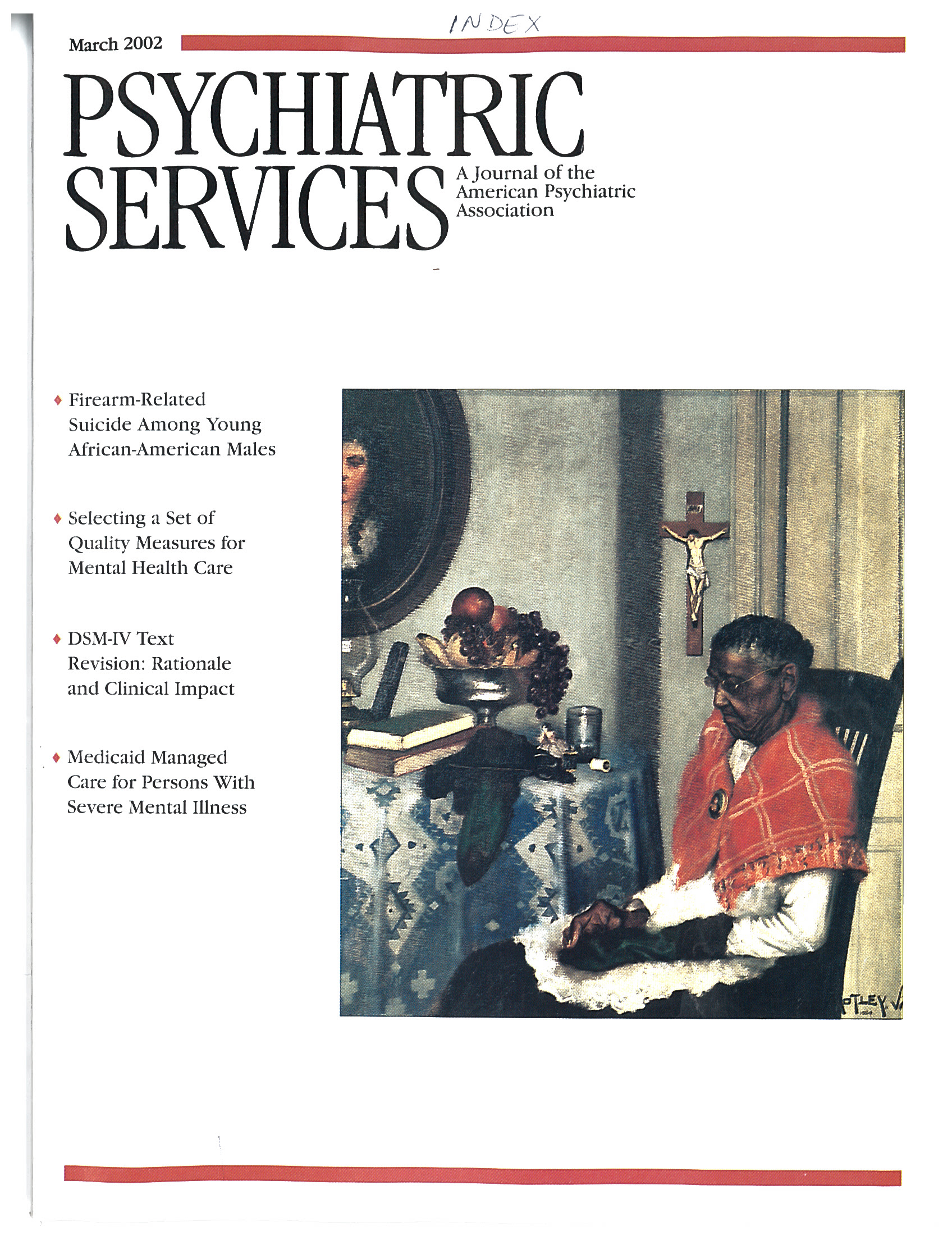To the Editor: Psychoeducational family programs, in combination with medication management, have been shown to make a substantial contribution to preventing relapse among psychotic patients, particularly among those with chronic schizophrenia (
1). Although research indicates that family intervention benefits these patients and their relatives, the reasons remain unclear. Various projects, including the International Pilot Study on Schizophrenia, have shown that the prognoses of patients with schizophrenia are better in developing countries. Researchers around the world have attributed this finding to family members' involvement with their chronically ill relative and their feelings of responsibility for the patient. However, little is known about which family members provide care in developing countries.
We conducted a study at the chronic schizophrenic clinic of the department of psychiatry, an outpatient facility at the National Institute of Mental Health and Neurosciences in Bangalore, India. The sample consisted of the caregivers who accompanied 50 consecutively admitted patients with chronic schizophrenia. A semistructured interview was designed to elicit information about all caregivers in the patient's life. The interviews were conducted between March and May 1999.
The results showed that 36 of the 50 primary caregivers (72 percent) were between the ages of 35 and 64 years. Twenty-six (52 percent) were male, and 29 (58 percent) were married. Thirty-four of the caregivers (68 percent) were employed, and their mean±SD monthly income was $35± $10 (in U.S. dollars). Twenty-one of the primary caregivers (42 percent) were parents, and 19 (38 percent) were spouses. In 22 cases (44 percent), the spouse was responsible for medication management; in 15 cases (30 percent), the responsibility was assumed by a parent. In five cases (10 percent), siblings managed the patient's medications; other relatives assumed this role in five cases (10 percent) and friends in two cases (4 percent). One patient reported managing his own medications. A similar pattern was observed in ensuring that medications were properly administered during the patient's stay in the clinic. Spouses took the initiative in 21 cases (42 percent) and parents in 13 cases (26 percent).
During hospitalization, a parent assumed responsibility for looking after the patient in 16 cases (32 percent); in 15 cases (30 percent) the role was assumed by a spouse, and in 19 cases (38 percent) it was assumed by a sibling, another relative, or a friend. In 46 cases (92 percent), caregivers reported giving medications according to the prescribed dosage. Four caregivers (8 percent) reported giving larger doses when the patient had insomnia or was irritable.
Our results suggest that it is important to identify the caregivers in the family. In our sample, different people—both family members and friends—assumed different roles in providing care. Studies have shown that educating patients and their family members about identifying symptoms, drug effects, and side effects can improve compliance among patients with schizophrenia (
2). Our study emphasizes the importance of providing skills training to identified caregivers rather than to all family members.

